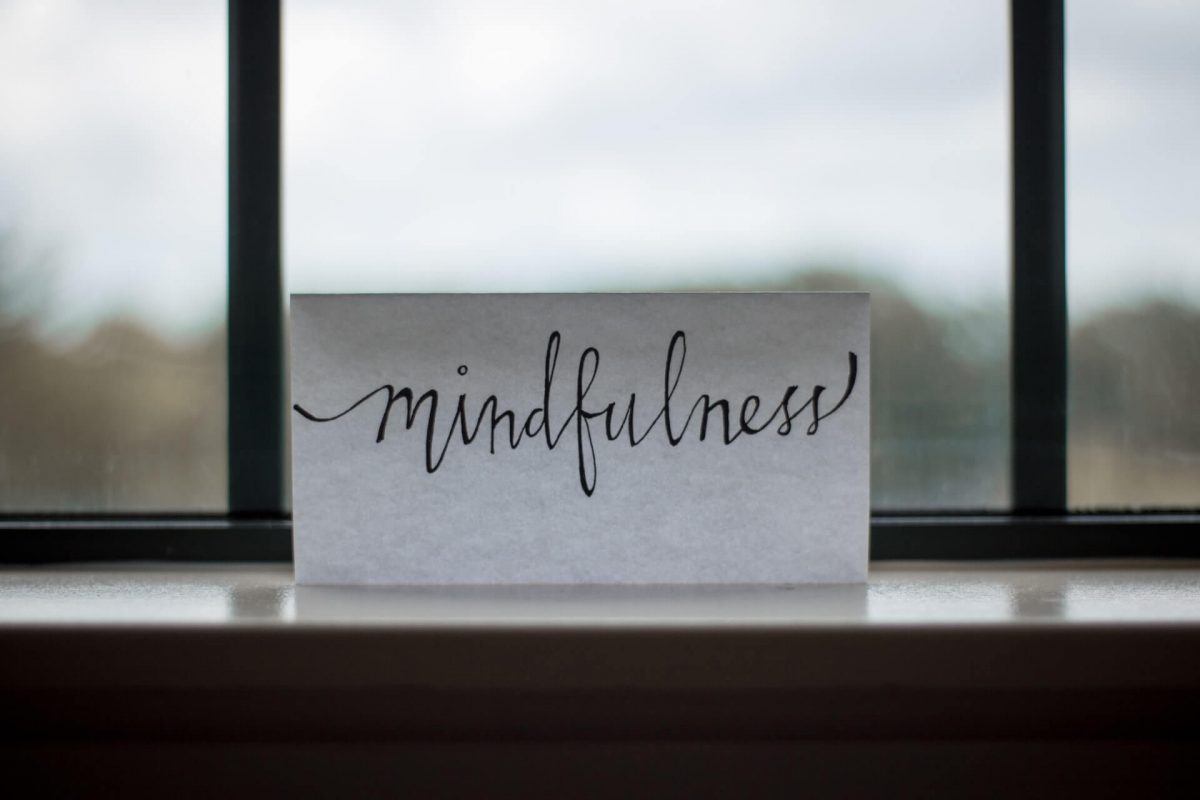There is a whole range of terms used to describe anxiety disorder. The news and the internet are awash with words related to health anxiety and illness anxiety disorder; some of the content is helpful, others not so much.
Other illness anxiety-related terms
Depending on who it is you are speaking to -the terms used to describe health anxiety (particularly in mental health) include:
- Hypochondria or hypochondriasis
- Somatic symptom disorder
- Illness anxiety and illness anxiety disorder (IAD)
- Health anxiety
What is illness anxiety disorder?
Health anxiety or illness anxiety disorder (initially referred to as hypochondriasis) is a mental health condition that features excessive worry or concern about having or developing a severe health condition despite having few or no symptoms.
People suffering from health anxiety will often visit the doctor worried about illness signs, believing that their symptoms are associated with a serious medical condition.
They may even believe that any mild symptoms they are experiencing are a lot more severe than they are.
Health worries
Despite someone receiving a thorough medical evaluation from the doctor, the health worries that people with health anxiety experience are genuine – a disorder that can disrupt their everyday lives normal functioning.
Symptoms
The symptoms presented in health anxiety or illness anxiety disorder get centred around a preoccupation of having a severe illness or disease such as cancer or HIV.
All this worry gets based on standard body sensations or very mild symptoms. Typical symptoms of health anxiety include:
- Constantly talking to others about health concerns
- Excessive worry or fear about contracting a specific disease or illness
- Avoiding people, places, television programs, and even a news story that may include health information or symptoms of a particular illness
- Feeling on edge and frequently obsessed with checking the status of your health
- Constantly searching symptoms of a serious disease on the internet or other health information
- Distress and anxiety that disrupts your daily functioning
- Making doctor appointments to check up on your symptoms or normal body sensations and functions
- Incapable of being reassured by a doctor or health provider even when test results come back negative
- Constantly seeking reassurance from friends, family members and health providers about your health (note: any consolation that gets experienced after receiving a clean bill of health is often temporary, and the person usually lapses back into an anxious health state)
- Significant distress about the possibility of becoming sick in the future
- Heightened awareness about minor body sensations or symptoms such as achy joints, headaches or sweating
- Fearing that symptoms are related to severe disease or illness
Hypochondriasis reclassified
In the past, health anxiety was a highly stigmatized mental health disorder.
People with symptoms of illness anxiety disorder or health anxiety were not taken seriously enough and got accused of wasting the doctors time.
Health anxiety sufferers have also been the brunt of many jokes within familial and other communities.
Fortunately, due to the emergence of mental health initiatives – the stigma attached to health anxiety and other anxiety disorders are not as rife as they once were.
Diagnostic and statistical manual
The statistical manual of mental health disorders (known as the DSM-5), has recently eliminated the term hypochondria or hypochondriasis from the manual because the terms were considered negative connotations and stigmatizing.
People who once received a hypochondria or hypochondriasis diagnosis are now diagnosed with either illness anxiety disorder or somatic symptom disorder.
Although, data shows that some feel hypochondriasis should be reclassified within the statistical manual of mental disorders as a phobia since the condition of health anxiety represents a specific type of fear.
What causes illness anxiety?
There are many theories about why some people are prone to anxiety disorders and the excessive worry that gets centred around developing (or having) severe health conditions.
Risk factors
Health anxieties are typically prevalent within a specific group of people, and the signs and symptoms of health anxiety can accompany other mental health conditions such as depression and anxiety.
People who constantly worry about their health status usually have adverse childhood experiences and other negative life factors. Some of these factors include:
- Stress and post-traumatic stress disorder
- A history of abuse, trauma or neglect during childhood
- Having co-occurring mental health problems such as anxiety, major depressive disorder and obsessive-compulsive disorder
- A family history of illness or experiencing childhood illness (or witnessing someone close to you with a severe illness)
- Having a specific symptom that may pose a threat
- Feeling uncomfortable or strange when experiencing normal bodily sensations
Media exposure
Other research suggests that people who constantly search for online information related to specific disease symptoms or those who spend a lot of time on social media and the internet are also more prone to developing an illness anxiety disorder and health anxiety.
Other disorders
Experts explain that those with health anxiety often have other co-occurring mental health conditions such as:
- Panic disorder
- Generalized anxiety disorder
- Agoraphobia
Implications
Health anxiety often becomes a self-defeating cycle that is repetitive and difficult to break once it takes hold.
A person with health anxiety may think they are having a heart attack when, in fact, they are experiencing symptoms of anxiety.
It’s crucial to note that many physical symptoms of illness can get caused by stress (like the example above).
All this becomes a self-perpetuating cycle – the person gets convinced they have a severe illness and, in turn, will begin to experience symptoms (or cause any existing symptoms to get worse).
Health anxiety cycle
Essentially, the fear of becoming ill continues to feed on symptoms likely caused by the stress of excessive worry, and thus, the cycle of health anxiety ensues.
Advertising campaigns, website content, and health products with a mission to create awareness and advice around specific diseases only exacerbates someone’s worries with health anxiety.
The typical health worries of a health anxious person may include:
- Sweating
- Nausea
- Skin conditions
- Joint and muscle pain
- Dizziness
When someone constantly worries about their health status, all this can cause the body to produce new symptoms or cause any existing symptoms to worsen.
The types of health worries
Health anxiety disorder or illness anxiety disorder gets categorized into two types:
- Care-seeking type
- Care -avoidant type
Care-seeking type
Those with health anxiety that fall under the ”care-seeking type” respond with constantly seeking reassurance.
People in this group will likely visit the doctor regularly, and are unable to be reassured that their health is fine despite negative tests. They may also seek reassurance from a loved one, family member, friend and health provider.
Care – avoidant type
The care avoidant type operates in reverse to the care-seeking type; care avoidant people usually avoid visiting the doctor entirely in case they receive bad news.
They are also reluctant to share their worries and concerns about their health with family members and friends for fear that they will get laughed at, or worse, have their suspicions confirmed.
It may even be possible for someone with health anxiety or somatic symptom disorder to flip between being care-seeking and care-avoidant in any health anxious episode.
Treatment options
Fortunately, there are plenty of treatment options available to those with illness anxiety.
The treatment plan will depend on the severity of the illness anxiety disorder and whether any other co-occurring conditions are present.
Psychotherapy
Psychotherapy has many different methods and approaches and helps treat illness anxiety disorder.
Cognitive Behavioral Therapy
Cognitive Behavioral Therapy (CBT) has become a popular therapy for illness anxiety in recent years.
CBT helps people rationalize their illness phobia by assessing their likelihood of contracting a severe illness.
A psychologist works with the health anxiety sufferer to eliminate the potential for serious illness through logic and understanding.
For example, a person with illness anxiety may worry that they have cancer – a mental health professional will go through the process of elimination through statistics and likelihood by asking the patient questions such as;
- How common is this specific cancer?
- Could the symptoms be something else?
- What is the probability that the symptoms are nothing at all?
CBT allows the health anxiety sufferer to rationalize their illness anxiety disorder by asking themselves similar questions to the ones above.

Self-care
There are other effective ways that someone with an anxiety disorder, such as illness anxiety disorder, can take care of themselves.
Self-help strategies may help to reduce feelings of anxiety – particularly the emotions associated with illness anxiety, all of which include:
- Practising mindfulness: Mindfulness allows people to focus on the present moment by becoming aware of their breathing and body sensations. All this may help people understand the everyday sensations taking place in their bodies and view them as standard rather than a potential illness sign.
- Stress management: Managing stress is an essential element to dealing with illness anxiety disorder, and techniques such as deep breathing, meditation, progressive muscle relaxation, and visualization may help to relieve stress and worries.
- Limiting exposure to unhelpful information: When someone gets constantly exposed to reading scary articles and health information, all this exacerbates the fears associated with an illness anxiety disorder. It is OK to seek health-related information, but it is crucial that the resources are reassuring and helpful and not designed to scaremonger.
Medications
Data suggests that medications such as Selective Serotonin Reuptake Inhibitors (SSRIs) may also effectively control the symptoms associated with an illness anxiety disorder.
Getting help
Research from the Mayo Clinic suggests that people suffering from illness anxiety disorder may benefit from seeking professional advice if the anxiety seems to worsen and is impairing their quality of life.
The Mayo Clinic also advised that people stick to the treatment plan set out for them by their health care providers by learning to recognize when they are getting stressed and applying the techniques they have learned in therapy.
Statistics
The American Psychiatric Association reported that women are more likely to experience anxiety disorder than men.
Other research shows that anxiety disorders are the most common disorders in the United States, with an estimated 18.1% of adult Americans impacted by the condition every year.

Get in touch
If you feel as though you or a loved one may be experiencing symptoms of illness anxiety disorder, then perhaps it’s time to get in touch with one of our specialists at White River Manor who can help.

